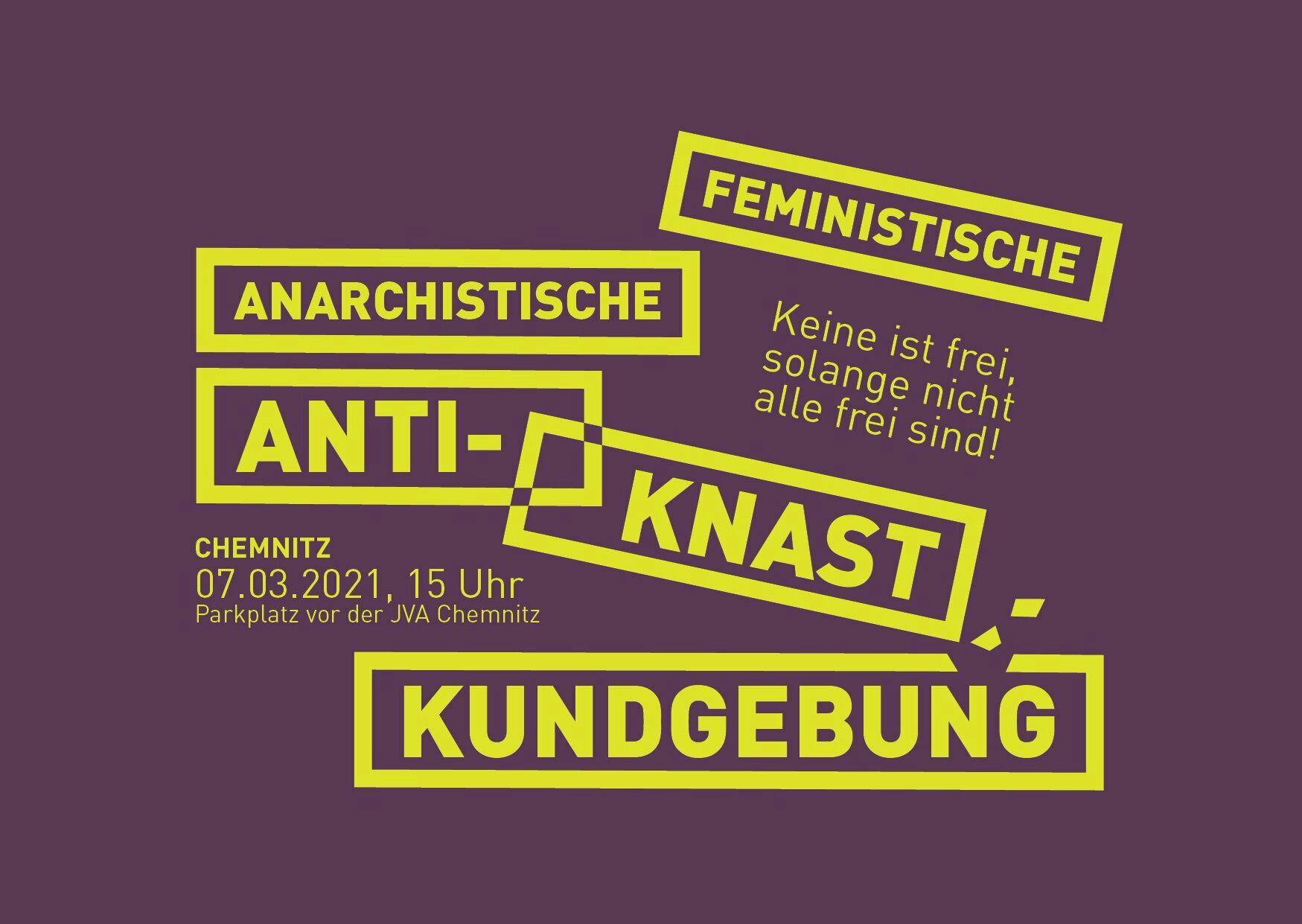When: 07.03.2021 at 3 pm
Where: on the parking lot in front of the prison in Chemnitz
Prison is a means for the state to deal with social problems. It is supposed to “resocialize” you. But you have hardly any opportunity for self-determination and you are isolated from the rest of the society. Every third person ends up there again after release, because it doesn’t help prisoners, but to secure the status quo. Prison is a violent and monotonous place. The authoritarian penal system reinforces discrimination and economic exploitation.
If you also think that prison cannot be a solution for individual and social problems, then come with us to Chemnitz Prison on 07.03.2021. There we want to get the prisoners a bit out of isolation, inform ourselves together about the conditions in prison and show our solidarity.
Corona and jail
The pandemic creates uncertainty. Outside and especially in jail. There is neither information nor enough protective measures or medical requirements to counter Corona outbreaks in jail. Layoffs at the beginning of the pandemic put people with nothing on the streets. In addition to fear of infection, prisoners have struggled with immense isolation. Visits have been limited or suspended. Letters and telephones are last, but expensive and thus inaccessible, ways for communication.
Poverty and health
Chemnitz Women’s Jail, like every jail in the world is a place of poverty. That’s because the laws are designed to hit the poor harder than the rich. Small thefts or not being able to pay bills can put you behind bars, while you lack money for lawyers. If you use drugs to numb stress and psychological suffering, you will be criminalized. Especially those traumatized by patriarchal violence are punished for the consequences of their trauma.
Who is in jail
People are put in jail according to the 2-gender system. Often it is not the entry in the passport that is decisive, but which norms are assigned to bodies. Trans, inter and non-binary people are particularly often affected by discrimination, violence and criminalization. In prison, they then suffer psychological and physical violence from fellow prisoners and staff. Psychotherapy, counseling services or access to specific medical services are usually lacking.
People who experience poverty and racism or suffer from mental illness are more likely to be incarcerated than others. This occurs, for example, through imprisonment in default of payment of e fine or racist police controls. The biographies of incarcerated individuals are also often marked by interpersonal violence. Prison does not provide any support or improvement here, but reproduces and intensifies this violence and thus secures existing power relations.
Arrival:
Since there will be no demo, we will meet in front of the jail in the parking lot. There will be an individual arrival from different cities.
Within Chemnitz for train travel: take the tram from the main station to the Technopark stop. https://www.cvag.de/
